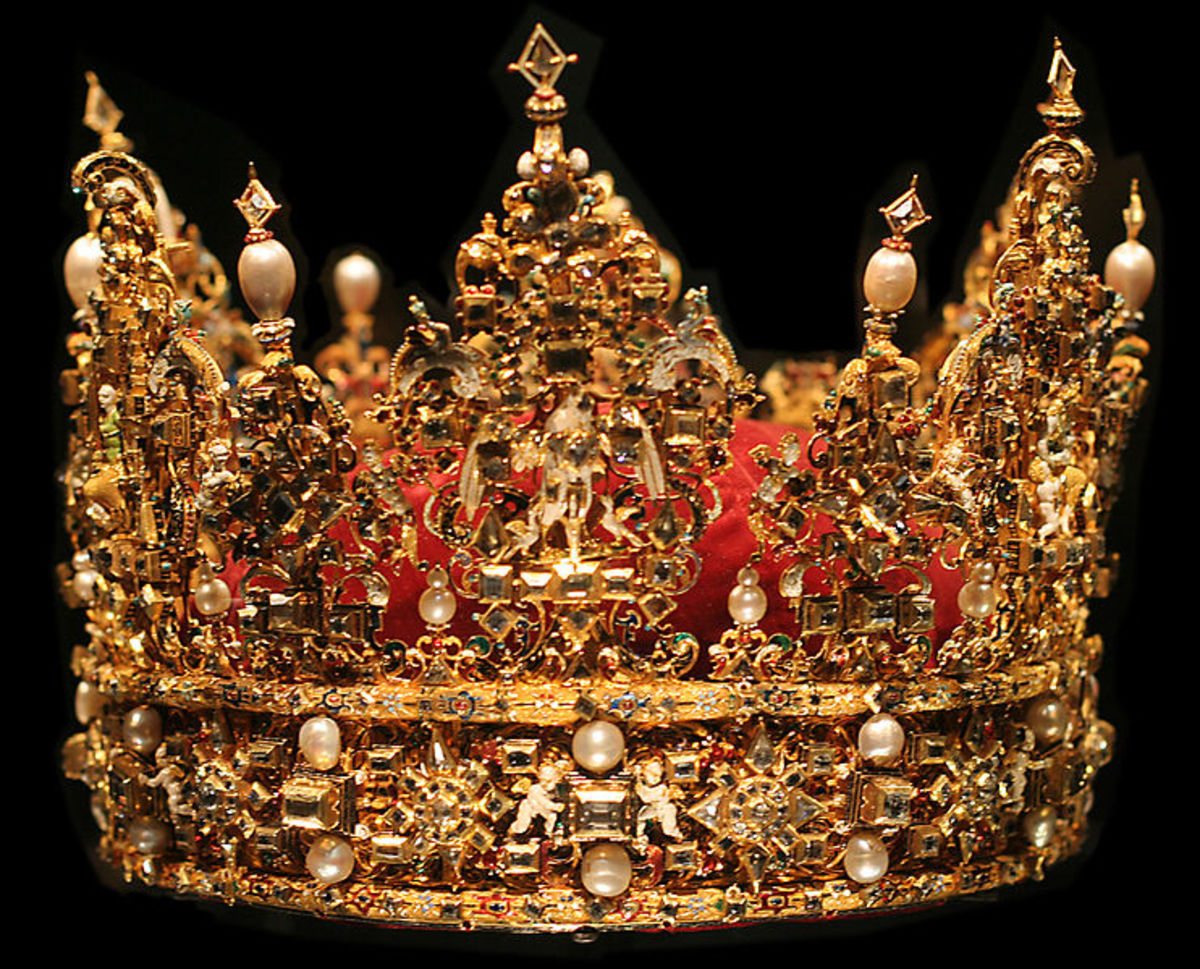Novel: The Ostrich Dance - Chapter Seven

Chapter Seven
Naomi
The mild shock that he felt at beholding her, like waking up from a dream and actually seeing live the character you dreamt about, took a few seconds to subside. During that time he did not see the boldly outstretched hand, but only those eyes; those wide, curious eyes, with dark gray irises and pitch-black pupils. At length, he saw the boldness receding in them and uncertainty setting in. Only then did he notice the hand, which was slowly being withdrawn. He took it a little awkwardly and shook it.
“Hello!” he started in English then quickly checked himself. He repeated in Onagi.
“I’m OK,” she answered a bit shy now.
“My name is… is…. Naomi Akech,” she found her voice just now recalling what she was supposed to say, “I’m your sister.”
He then noticed that he was still holding her hand, yet he was in no hurry to release it. Like she would disappear once again into the oblivion from which she had just emerged.
“Where do you live?”
Using her free hand she pointed in the general direction of the river, “I live down across the second river from here. It is called Misati village.”
Caephas did not wonder how he could have a sister in Misati village, which he did not know, but what it was that made this girl so…… so…… well, unique. Meanwhile the long cue was shuffling its feet impatiently. Naomi looked over her shoulder and suddenly removed her hand from his, then moved on without a backward glance. Though over a hundred odd hands shook his after that and as many names graced his ears, he remembered only one of them: Naomi.
At last the introductions were stopped once again. He heard someone reassuring those who were unlucky to await their chance the following day. There was a muffled protest as they reluctantly dispersed, knowing full well the chance would never come. Anyway, everything was presently drowned by the deep voice of Peter Alal over the high decibel public address system. He alternated rapidly between English, Onagi and Swahili, exhibiting an amazing mastery of each language.
The Program
“Ladies and gentlemen from all walks of life, please take your seats if any. Those who still wish to view the body will resume doing so shortly. Presently though, our program will run as follows. First, Pastor Odipo of the New Reformed Church of Africa will lead us in a word of prayer. Then we shall all take our lunch on as is where is basis. After that, we shall have miend udo (the Ostrich Dance), the dance of our great grandfather Nyamogo, led by the Boro traditional dance troupe. All the sigueya (chants) and sigalagala (ululating) will accompany this dance. As soon as the dance is over we shall proceed to the speeches. We shall then take supper again on an as is where is basis.
Meanwhile, those who have something small to deposit after eating, can go ahead and do so at the public banking halls down there (indicating the latrines far away next to the fence). They are open and at your service twenty-four hours a day. Please keep them clean.”
This was approximately his entire announcement. Different masses laughed at different times to his message, depending on which language was used to deliver it each time. Apparently, the Onagi version was the funniest or the most popular.
“Finally, we shall sleep on the same as is where is basis. Welcome Pastor.”
The Babol
Pastor Odipo, a short, bald man in his mid fifties, had a protruding stomach, which greatly contrasted his flat buttocks. His large, bloodshot eyes appeared to be ready to pop out of their sockets at any time, as they rolled around like a chameleon’s. He created the impression that he could pinpoint any hidden sin in his less than holy flock. He took in everything, beginning with the tent on his left where visitors from villages far and wide sat in dignified poses, in mostly borrowed frocks or ill fitting suits. He then swept the large crowd of the commoners and locals whose short lived stay in the tents was finally over. They were not so particular about their dressing, but were unusually smart all the same. He then turned to the tent on the right where the more important villagers and the less important people of the city sat. The city women were quite distinct as they were either in trouser suits; or micro-minis which forced them to sit at angles to avoid exposing their decimal points.
Lastly, he turned right round to face the main central tent. He looked briefly at the casket elevated on the dais next to him, and at Caephas who he now faced directly. He then looked at some of the most important people in Onagiland who sat relaxed and confident in their unshakable belief of self-importance. They were MPs, councilors, chiefs, civil servants, bishops and business executives. After taking in all, he turned round and started not a prayer but a sermon. He had probably resolved that these people had to be brought closer to God before their prayer could be heard.
The sermon was based on the story of Nicodemus who, despite being a rich man, had humbled himself before the lord. It was not hard to tell who Nicodemus was in this case, what could have been slightly suspect was whether the late Hon. McOpondo had humbled himself before the lord. But no one thought about that now because he was dead. Well, almost no one, since it did cross Caephas’ mind now that, once dead, the biggest crook always becomes a saint.
The only problem with the good Pastor’s sermon was the fact that he chose to preach in English, even though he only had a smattering of the language. So there wasn’t much of a sermon. All the same the local blokes in the congregation picked out two words: “The babol.” The Pastor repeatedly referred to the world’s holiest of books in this unholy manner. They then made a joke of it by pre-empting him every time he took a pose.
“The babol ..” went the crowd.
“The babol says ….” continued the Pastor unperturbed.
The third time round, the crowd had worked itself into stitches of mirth and needless to say, the sermon was a wasted effort as far as these folk were concerned. Pastor Babol became the new name of the man of God.
So when he finally began his prayer, a thunderous affair that must have caused a stampede in heaven, part of the crowd giggled throughout its sacred duration. The Pastor included castigation of all those who joked with the word of God (in Onagi) causing louder laughter. Those in the main tent too, hats off and heads bowed, laughed, more at the increasingly chaotic language than anything else.
“God in heaven, bless all children. Give sleep, eat and pass exam as school there trouble on all world. Satan cause death everybody cry, name savior of Calvary is die on cross. Haaleluujaaah!”
By the end of the prayer everybody laughed and thought what a great comedy it had been. They all said: “Thank you Pastor Babol” then laughed again. The Pastor was unshaken. He resumed his dignified pose on his seat next to the high a mighty. The crowd soon shut up because of his indifference to them.
The Meal
Then it was lunchtime, and this department had fallen in the hands of Major Ojiem. He and his men plus carefully selected women, began serving everybody with ugali and beef stew from the newly slaughtered cows. Those in the tents enjoyed a wider variety including chapattis, rice, chicken, salad, vegetables and even bottled sodas.
The style of eating was also different. The villagers sat in rings around huge chunks of ugali in trays and big bowls of stew from which they shared their meal. They broke off fistful lumps of the ugali, kneaded it into a compact ball, thumbed in the shape of a spoon, scooped up gravy with it and put the lot in their mouth. As they chewed, they bit off a piece of meat to go down with it. Children and adults, male and female, in their separate groups, all ate in this way. Those who didn’t eat meat, or conveniently pretended not to, had their own small dishes of fried eggs and vegetables, but they shared the ugali regardless. The older men had in addition, a bowl of ochuri made from half-digested matter from the entrails of the cows. The ochuri served as dessert, making it a three course meal.
In the tents, everyone had their own plate, already served such that one could only turn it away if he disliked part of the contents. They had spoons, knives and forks even though most had to use their laps as tables. Their sodas were set down on the thick carpet awaiting their turn to be consumed. Some of the city folk were using cutlery for the very first time, but so what?
Nevertheless, they all told stories as they ate. That was the culture. There were flies everywhere by now using all sorts of suicidal tricks to get at the food. People had to constantly wave them off. A kite in the sky descended smartly and scooped a large piece of meat from a startled little boy. Everyone around laughed in surprise. Then, in spite of Major Ojiem’s hawk eyed personnel, a dog squeezed in through a hole in the fence with a palm leaf basket locked firmly in its jaw. Someone outside the fence cursed it then ran away to avoid being seen and identified. It was not hard to figure out that there was stolen meat in the basket.
Against the established tradition of rewarding those who participated in the slaughtering of animals with pieces of meat, Major Ojiem had refused to do so that day. So, subliming was the only way meat could have gotten into that basket. There was embarrassed laughter only as the dog disappeared with its prize towards the river. Even the pressmen, who were around with all sorts of gadgets, took no photographs. They had no wish to do that sort of thing. Call it respect for the dead.
The meal was not really going to be over, since more guests were arriving each minute and had to be fed after the customary mourning and viewing of the body. But at least in each party there would be few enough to eat in a more secluded place. The trick lay in spotting and isolating them, since they would complain bitterly if they did not feed. Avoiding such complaints mattered to the village a lot.
The Ostrich Dance
Even so, the main meal was over and eating things had to be cleared away. Next on the agenda was the ostrich dance, miend udo. This was the dance of war and peace, celebration and mourning, weddings and harvests, initiation (which had died out) and worship. The dance was adapted from that of the big graceful bird, the ostrich, which did not exist anywhere in Onagiland. The ancestors must have seen that bird elsewhere. The dance was as old as the tribe itself. Yes, miend udo the Onagi dance.
A sizeable area was thus cleared in front of the tents, the instrumentalists took to this area. They drummed varying tunes which all harmonized together with the guiding bass drums. It was a beautifully synchronized orchestra whose composer and conductor was God himself. The bass drums formed the rhythmic progression with three repetitive beats.
“Tii-Ting! Ting!
Tii-Ting! Ting!
Tii-Ting! Ting!”
The first two beats followed each other in rapid immediate succession, with the third beat coming about half-a-second later. The next round was then repeated after about one and quarter seconds. Meanwhile, the smaller drums, string, wind and percussion instruments filled the spaces with a throbbing, melodious harmony. Caephas, like all the other observers, did not realize he was nodding his head in time with the music.
Then came the dancers, accompanied by a loud cheer from the eight-thousand-plus crowd. The men came first with their graceful ostrich feather costumes and formed a large circle around the instrumentalists. There were about sixty of them, all dancing in the same pattern, without a clear-cut leader. Once again there was no need for prior rehearsals. In any case, some of the dancers hailed from miles apart and had never met one another before. Their dance was therefore dictated by sheer rhythm and experience.
They shook their shoulders in a rapid alternating left-right-left rhythm that sent the feathers strapped on their upper arms in fluffy vibrations. Then with a twist in the tune, they moved both shoulders back and forth simultaneously. Of course they moved forward while the circle remained intact. This they did by skipping on one leg, then on the other. Suddenly, they would halt. Then they would twist their decorated torsos, left-right-left-right, then stop together, bend together to one side inner-circle and touch the ground with the outer hand. They would repeat the same movement in the outer circle one octave later. After a few repeats of this, they would suddenly stop again, and then squat and rise, squat and rise, squat and rise, all the while keeping the shoulder vibrations going. The crowds ululated and screamed in sheer ecstasy, as the children actively imitated.
Suddenly, a self-appointed soloist, who was obviously not sober, dressed in pieces of hide over one shoulder and across the loin (like a skirt and blouse), with cowrie-shells dangling from a band around his head and most of his exposed body smeared in mud and ochre of different colors, positioned himself near the microphones. He then re-launched the good old album known as “Owang’ Winyo”, the song in praise of the highly adulated bird: the crested crane. Every Onagi worth his salt could sing that song.
Solo: Winyo majasunga Owang winyo majasunga (Proud bird Owang proud bird)
Chorus: Kadhano (So human)
Solo: Winyo nyaksure Owang winyo nyaksure (Bird with a crown Owang bird with a crown)
Chorus: Kadhano (So human)
Solo: Erooo! (Right there)
Chorus: Owaaang! Owang winyo majasunga kadhano (Owang the bird so humanly proud)
The Entire Crowd
The entire crowd sang; dignitaries and commoners, the learned and the semi-literate, the holy and the not so holy. It all looked to Caephas as if the whole world was singing. Then the women, lessos (loin cloths) strapped round their breasts and splintered sisal skirts round their waists and beads crisscrossing their chests, took to the stage with the men. The crowd was going into frenzy. The women’s dance consisted of a waist swinging movement in a slightly stooping and knee-bent position that sent the skirts swirling this way and that. Their bare feet twisted to the right on heel pivot, and then their heels followed while pivoted on the balls of their feet. So in their own half-circle, they gained ground to the right, stopped suddenly, then retraced their steps to the left. It was simply marvelous as far as Caephas was concerned.
That was not all however. Soon there came the kima dancers, whose costume was made of colabus monkey skin cloaks. The cloaks had several monkey tails hanging on the back. The dancers also had headgears of the same material. Since their entire bodies were covered in the front-open cloaks, they danced by opening out and folding their arms while jumping forwards with both feet.
In the meantime, many songs and as many soloists, had so far graced the occasion. Caephas couldn’t tell what was the most fascinating; the VIPs singing and nodding in the tents; the rigorous and athletic dancers and musicians; the little children imitating them; or the police officers keeping a watchful eye but subconsciously tapping their buttons on their thighs. Everything was amazing. So his people had a culture, a living active culture, after all. His people the Onagi, the people of the Ostrich dance. How proud he was to be one of them at that moment.
A young girl approached the microphones. Caephas followed her with his eyes the way angels follow the face of God. She walked with a springy gait, graceful as an eland, in time with the rhythm. There had been a slight break in the flow of songs as everyone awaited the next soloist. She was filling in before somebody else did. No sooner did she position herself than she started singing a slow, mournful song, in a manner so arresting that the instrumentalists were forced to slow down their beat to conform.
Her voice was made of honey. Her voice was an oiled axel turning, a flowing river, a twirling whirlwind, milk being churned in a guard, beyond his description. Everyone was caught unawares before they adjusted to her song. A new dance was immediately choreographed and it caught on fast. People clapped their hands in time with the beat. For Caephas, these things could as well not be happening, since he noticed none of them. He remained an open mouthed statue.
The song soon captured everyone as its Christian message pulled at the innermost corners of their heart of hearts. Some sung themselves to tears while most ended in a trance. They had heard this song before, but from today, it would never be the same again. Still, Caephas felt the impact of the song more than anyone else and his eyes never left the singer.
Solo: Ne ok ang’eyo hosanna wuod Daudi ne ok ang’eyo (I didn’t know Hosanna son of David, I didn’t know you were…..)
Chorus: Tayaa (The light).
Solo: Niwara nono hosanna wuod Daudi niwara nono.. (You saved me for free Hosanna son of David you saved me for free…)
Chorus: Tayaa (The light)
Solo: Niwara nono (You saved me for free)
Chorus: Jaler niwara nono tayaa (Holy one you saved me for free the light)
The song captivated all. The singer astonished all. Caephas was more captivated and astonished than all the rest. For the singer was, the one and only, Naomi.
Professor Aledi
When someone stood directly in from of him, he craned his neck round the obstacle, so as not to lose his line of vision, without even realizing it. Whoever it was must have hesitated to follow his gaze for a moment before beginning to tap him on the shoulder. He was tapped around three times without any response. Then some feminine voice called his name several times. Still no response. Then a body closed his view again and he simply re-adjusted his position once more without ever taking his eyes off their target. At last there was general laughter around him, which brought him back to his senses. He looked up at the person in front of him. He was looking into the eyes of the second face, the lady who had arrived in a Cortina.
“Heh! You were so engrossed in watching that dance,” she remarked in English.
“Ah! It is not the dance really, it is that song, completely carried me away I’m afraid.”
“Oh no! Don’t be, it is a good song actually. Anyway, I wish to introduce myself, my name is Aledi Janak …..”
“You mean you are… the daughter of Janak Ajulo?”
“Well yes. But how comes you know my father?”
“I actually don’t. I mean I never saw him. But my father talked to me a hell of a lot about him, if you will forgive my American lingo.”
“That’s ok. You don’t seem to have liked what you heard about him.”
“You are right, I didn’t just like it, I loved it. In fact I have grown to admire your father so much, it is as if I knew him personally.”
There was a short pause then she started again.
“Currently I am a professor of Chemistry at the University of Iborian. I actually travelled with you though you may not have noticed in that long convoy.”
“Not really, I did notice your car, but I could not tell which was in the convoy and which was not.”
They switched to small talk about work, study, countries and so on. He did notice that there was something bothering her, but he was not familiar enough with her to push it. The conversation was almost over when she finally asked.
“You say he talked to you about my father, did he ever mention me?” If you are one who knows when a woman is listening, then Aledi was really listening after that question.
“Well he did say you people grew up here together when my grandpa and your dad worked for the DC.”
She looked quite relieved to hear that. Why, he could not tell. He was certainly not going to mention that she had been his daddy’s lover, not on your life; not even with his American frankness. He would let sleeping dogs lie.
The Politics
She soon went someplace else. The music was now over and it was time for the politicians to speak. As was routine the small fish Omena, spoke before the Mbuta could speak. The first on the rostrum were local activists of the different political parties available on the local menu. Though there were about forty-five political parties in the country, some of which consisted of officials only; there were two well represented ones locally. They were the ruling party (RUPA) and the National People’s Choice (NPC), which was the most popular in Onagiland, having produced the largest number of councilors and all the MPs in Onagi constituencies, during the 1992 general elections.
First on the rump was Philemon Osomba, the local branch chairman of RUPA. He was a short, bony, bald-headed septuagenarian, with a high squeaky voice. Who was in a suit one size too big.
“Everybody!”
“RUPA!”
The response of the audience was not as loud as might have been expected since the people’s hearts were in NPC. However, the dead man had been a RUPA life member and one could not argue with the dead.
“Everybody!”
“Rupaa!!”
“All the honorable distinguished guests, ladies and gentlemen, I am really sorry about the departure of the our great politician and my personal friend, Hon. McOpondo. We shared a lot with him for many years, both as elders of this village and politicians. His passing is therefore, very sad indeed and I would like to pass my heartfelt condolences to his son and the other members of his family.”
Matters of the Heart
He then switched to Onagi at this juncture since his otherwise excellent English was still limiting in “matters of the heart” as they say.
“What I want you to know is that the late McOpondo was a generous and respectful man. He supported many poor people and remained loyal to the RUPA even when others were swayed by the wind of change, becoming spiteful and insolent. People, who burned houses, beat up others and even killed, to prove the point that the multiparty system was the only way out of our problems. People who believed that the word multiparty only meant being loyal to the party they supported. But McOpondo and I were lions and we survived it all.”
The audience laughed loudly and cheered at the suddenly thunderous voice.
“Where is the development that was promised now? Where is that progress? Tell me you multiparty generation? Hasn’t this country simply become worse? Now that my fellow lion is dead, I don’t know how I am going to live with some of the current politicians, who are like children without any sense of direction. Politicians, who behave like bulls, charging with all their might at a fence, in order to break into a slaughterhouse compound. I think since McOpondo was younger than me, I would rather be dead too.
This is my last call to all of you, rejoin RUPA now, or be ready to face the consequences.”
Many of the other political speeches were less than average in terms of content, compared to this one. Nevertheless, they were similar to it in that each speaker praised his own party and its leaders. What emerged to Caephas was that the worship of personalities rather than stating of issues took center stage. The MPs, all of them from NPC, were the biggest let down. Their speeches were on what would happen when their party took over power, not what was to be done currently. He found it hard to believe that they were the same reasonable gentlemen who had been talking to him earlier about Onagi institutions. Their analytical reasoning was totally gone. They were now simply demagogues. As his dad regularly said, the worst part of a politician is seen before a supportive crowd. East or west NPC was the best as far as the crowd was concerned. Reason; it had an Onagi presidential candidate.
So even though everyone mentioned increasing social problems like lack of food, jobs, business opportunities, energy, water and adequate money in circulation, no one mentioned the immediate step to be taken to rectify the situation. In fact, the biggest problem was the politicians’ lack of ideas and the guts to follow them through.
Then at last, something extraordinary happened.






